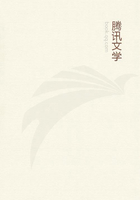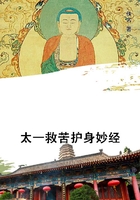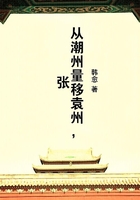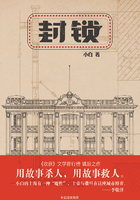Prometheus is by turns husbandman, wine-grower, baker, weaver.Whatever trade he works at, laboring only for himself, he buys what he consumes (his products) with one and the same money (his products), whose unit of measurement is necessarily his day's work.It is true that labor itself is liable to vary; Prometheus is not always in the same condition, and from one moment to another his enthusiasm, his fruitfulness, rises and falls.But, like everything that is subject to variation, labor has its average, which justifies us in saying that, on the whole, day's work pays for day's work, neither more nor less.It is quite true that, if we compare the products of a certain period of social life with those of another, the hundred millionth day's work of the human race will show a result incomparably superior to that of the first; but it must be remembered also that the life of the collective being can no more be divided than that of the individual;
that, though the days may not resemble each other, they are indissolubly united, and that in the sum total of existence pain and pleasure are common to them.If, then, the tailor, for rendering the value of a day's work, consumes ten times the product of the day's work of the weaver, it is as if the weaver gave ten days of his life for one day of the tailor's.This is exactly what happens when a peasant pays twelve francs to a lawyer for a document which it takes him an hour to prepare; and this inequality, this iniquity in exchanges, is the most potent cause of misery that the socialists have unveiled, -- as the economists confess in secret while awaiting a sign from the master that shall permit them to acknowledge it openly.
Every error in commutative justice is an immolation of the laborer, a transfusion of the blood of one man into the body of another.....Let no one be frightened; I have no intention of fulminating against property an irritating philippic; especially as I think that, according to my principles, humanity is never mistaken; that, in establishing itself at first upon the right of property, it only laid down one of the principles of its future organization; and that, the pre-ponderance of property once destroyed, it remains only to reduce this famous antithesis to unity.All the objections that can be offered in favor of property I am as well acquainted with as any of my critics, whom I ask as a favor to show their hearts when logic fails them.How can wealth that is not measured by labor be valuable? And if it is labor that creates wealth and legitimates property, how explain the consumption of the idler? Where is the honesty in a system of distribution in which a product is worth, according to the person, now more, now less, than it costs.
Say's ideas led to an agrarian law; therefore, the conservative party hastened to protest against them."The original source of wealth," M.Rossi had said, "is labor.In proclaiming this great principle, the industrial school has placed in evidence not only an economic principle, but that social fact which, in the hands of a skilful historian, becomes the surest guide in following the human race in its marchings and haltings upon the face of the earth."
Why, after having uttered these profound words in his lectures, has M.Rossi thought it his duty to retract them afterwards in a review, and to compromise gratuitously his dignity as a philosopher and an economist?
"Say that wealth is the result of labor alone; affirm that labor is always the measure of value, the regulator of prices; yet, to escape one way or another the objections which these doctrines call forth on all hands, some incomplete, others absolute, you will be obliged to generalize the idea of labor, and to substitute for analysis an utterly erroneous synthesis."
I regret that a man like M.Rossi should suggest to me so sad a thought;
but, while reading the passage that I have just quoted, I could not help saying: Science and truth have lost their influence: the present object of worship is the shop, and, after the shop, the desperate constitutionalism which represents it.To whom, then, does M.Rossi address himself? Is he in favor of labor or something else; analysis or synthesis? Is he in favor of all these things at once? Let him choose, for the conclusion is inevitably against him.
If labor is the source of all wealth, if it is the surest guide in tracing the history of human institutions on the face of the earth, why should equality of distribution, equality as measured by labor, not be a law?
If, on the contrary, there is wealth which is not the product of labor, why is the possession of it a privilege? Where is the legitimacy of monopoly?
Explain then, once for all, this theory of the right of unproductive consumption;
this jurisprudence of caprice, this religion of idleness, the sacred prerogative of a caste of the elect.
What, now, is the significance of this appeal from analysis to the false judgments of the synthesis? These metaphysical terms are of no use, save to indoctrinate simpletons, who do not suspect that the same proposition can be construed, indifferently and at will, analytically or synthetically.
Labor is the principle of value end the source of wealth: an analytic proposition such as M.Rossi likes, since it is the summary of an analysis in which it is demonstrated that the primitive notion of labor is identical with the subsequent notions of product, value, capital, wealth, etc.Nevertheless, we see that M.Rossi rejects the doctrine which results from this analysis.
Labor, capital, and land are the sources of wealth: a synthetic proposition, precisely such as M.Rossi does not like.Indeed, wealth is considered here as a general notion, produced in three distinct, but not identical, ways.And yet the doctrine thus formulated is the one that M.Rossi prefers.
Now, would it please M.Rossi to have us render his theory of monopoly analytically and ours of labor synthetically? I can give him the satisfaction.....

